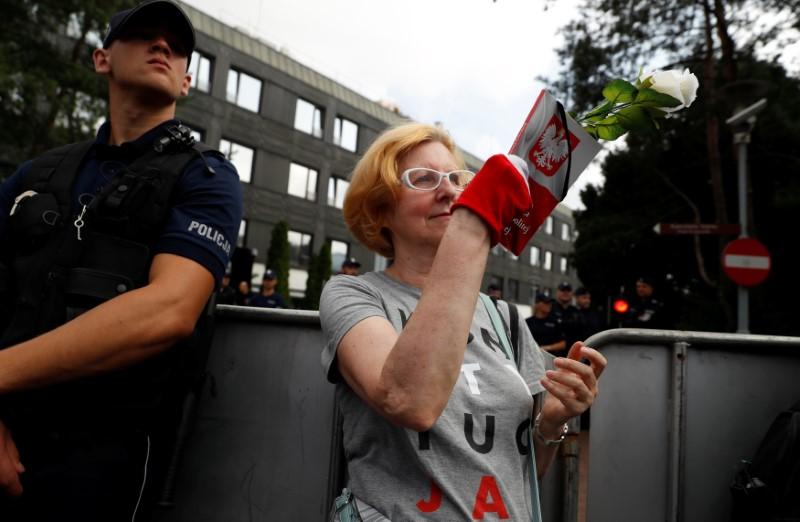The Polish Parliament adopted rules on Friday that will expedite the naming of a new Supreme Court chief under a sweeping and contentious judicial overhaul, sparking street protests.
Warsaw Police Department spokesperson Sylwester Marczak told TVP that a “very dangerous incident” took place shortly after 7 pm in front of the Parliament in Warsaw.





